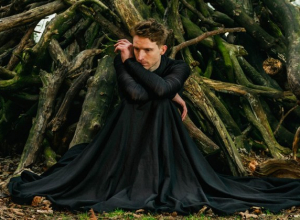Preventing and treating DJing injuries
By Toby King in Music / Festivals on 02 August 2022
When you’re thinking about injuries at work, you probably won’t count DJing among the professions that have a risk for physical injury. After all, you don’t have to haul heavy gears or materials all day long, you don’t work with dangerous chemicals, and you don’t have to spend many hours in a hazardous environment. However, just because DJing is much safer than other jobs, it doesn’t mean that it’s completely free from any risks. Keep reading the following to get a better idea of the most common injuries, how you can prevent them, and what you need to do to heal them in case you develop them.

Hearing damage
It should come as no surprise that hearing damage is one of the most common problems affecting DJs. Indeed, noise-induced hearing loss is, unfortunately, a familiar complaint among all types of musicians. Hearing damage is of particular concern when you work in environments that habitually exceed safe levels of noise exposure, with sound levels that can reach up to 109.7 dB. While this wouldn’t cause irreversible damage if it only happened once or twice, the nature of DJing means that you’ll expose yourself at least weekly.
However, not all hearing damage is created equal. There are many different disorders you can experience, including:
Tinnitus: Perhaps the most well-known disorder, tinnitus presents with the perception of sound when no external sound is actually there. It is estimated that no fewer than three-quarters of DJs experience the condition. The sound you hear can manifest as a ringing, buzzing, hissing or clicking sensation. If the symptoms are dramatic, they may cause anxiety or impact your concentration. Whether or not the disorder can be cured depends on the case. While there is no medication, talk therapy or hearing aids can help. If you only experience tinnitus symptoms in short bursts, it’s likely that it’ll fade over time.
Hyperacusis: This disorder presents with heightened sensitivity towards sounds. Said sounds can be either music or environmental, day-to-day noise. When you’re dealing with this condition, all sounds appear greatly amplified. This can lead to annoyance, pain and even fear. Hearing protection is the most important form of treatment, as is cognitive behavioural therapy. Some types of diet have also been shown to play a role in symptom management, namely meal plans that are low in sodium or histamines.
Diplacusis: A hearing disorder that causes you to experience the same auditory stimulus as different pitches between the years. It can occur with bacterial diseases such as inner ear infections but is also seen in those that experience acoustic trauma. There is currently no approved treatment scheme for the disorder, and the main purpose of the medical examination is to ascertain the cause of the symptoms. In some instances, however, treatment yields no results, and the only course of action is to wait for the symptomatology to go away on its own.
Noise-induced hearing loss: NIHL is a problem for many people living in the modern world due to frequent exposure to loud sounds and overloading of the neural apparatus in the inner ear. There are two types, either progressive loss resulting from continual exposure to noise or suddenly from subjection to high-intensity noise for a short period of time. The loud sounds affect the hearing cells and lead to permanent injury or even tissue death. However, there are strategies that can prevent or decrease the amount of damage. Musicians are among the most susceptible to hearing loss. Since lowering the volume at the source is not something you can do at shows, you should resort to physical protection that can ameliorate the impact of excessive noise.
While you have a responsibility towards your own safety, it can also be the fault of a third party. If you haven’t received the mandatory ear protection before a gig, it can count as negligence and make you eligible for damages compensation. You might want to look into accident at work claims in the UK to get a better idea of what you need to do to hold your case in court. The amount you will be entitled to receive depends on the extent of the damage, whether or not it is permanent, and if you’re dealing with disabling consequences. A mild injury can be worth up to £45,540, while a moderate to severe problem manifesting with total hearing loss in one year is estimated at between £31,310 and £45,540. For extreme damage, the compensation can be up to £109,650.
Ergonomics
While you’re engrossed in the music, it can be difficult to realise that your posture is not the most ideal. As a DJ, you are at risk of tenosynovitis, an inflammation of the synovium, the fluid-filled membrane that surrounds tendons. While most commonly experienced in the wrists, you may also discover it in other joints throughout the body. Repetitive strain injuries are also commonplace, given the repetition of the same motions over and over, like scratching and cueing.
Since a performance can last up to five hours, it means that you spend a significant amount of time standing. Sitting upright for extended periods comes with a wide array of musculoskeletal complications such as slouching, joint compression and muscle fatigue. Cardiovascular disorders are also not uncommon, including atherosclerosis, coronary artery disease and varicose veins.
There is no single treatment for these issues, so if you suspect something is wrong, you should visit your physician in order to get a correct diagnosis. Ignoring the problem has the potential to worsen it and make something treatable become a chronic issue. Depending on the disorder, you’ll need anti-inflammatory medicine or antibiotics, different footwear, or anti-fatigue mats. Some conditions may also necessitate surgery to help you improve.
Regardless of the treatment scheme required to make you better, it’s ideal to start sooner rather than later. Persistent symptoms are guaranteed to impact your ability to hold a good performance, and you’ll likely become frustrated and disheartened by your diminished ability to have a good show. When you take care of your health, you also take care of your art and craft.
Contactmusic
Suggested

Leisure Festival - Dreamland in Margate
On the same day that Glastonbury welcomed back Margate's adopted sons, The Libertines, Margate itself put on it's very own Leisure Festival as it...

Pretty Fierce talk to us about collaborating with Doja Cat, emetophobia, arena tours and staying "true to yourself" [EXCLUSIVE]
Sheffield's very own all girl group Pretty Fierce are still on a high after the recent release of their debut single - 'Ready For Me'.

Will Varley & Jack Valero - The Astor Theatre Deal Live Review
Three nights before the end of his current tour Will Varley returned to his home town of Deal to delight a sold out crowd in The Astor Theatre.

WYSE talks to us about her "form of synaesthesia", collaborating with Radiohead's Thom York and the prospect of touring with a band [EXCLUSIVE]
With only a few days to go before Portsmouth based songstress and producer WYSE releases her new single, 'Belladonna', we caught up with her to find...
Advertisement

Bay Bryan talks to us about being a "wee queer ginger", singing with Laura Marling and being inspired by Matilda [EXCLUSIVE]
Colorado raised, Glasgow educated and Manchester based Bay Bryan is nothing if not a multi-talented, multi-faceted artist performing as both...

Keelan X talks to us about staying true to "your creative vision", collaborating with Giorgio Moroder and being "a yoga nut" [EXCLUSIVE]
Former Marigolds band member Keelan Cunningham has rediscovered his love of music with his new solo project Keelan X.
![Luke De-Sciscio talks to us about having the courage to be yourself, forgiving that which is outside of one's control and following whims [EXCLUSIVE] Luke De-Sciscio talks to us about having the courage to be yourself, forgiving that which is outside of one's control and following whims [EXCLUSIVE]](https://images.contactmusic.com/images/home/homepage/luke-de-sciscio-abof-a.jpg)
Luke De-Sciscio talks to us about having the courage to be yourself, forgiving that which is outside of one's control and following whims [EXCLUSIVE]
Wiltshire singer-songwriter Luke De Sciscio, formally known as Folk Boy, is set to release is latest album - 'The Banquet' via AntiFragile Music on...

Annie Elise talks to us about the challenges a female producer has to face and "going through a year of grief and sickness" [EXCLUSIVE]
Electronic music pioneer and producer Annie Elise says that the release of her first EP - 'Breathe In, Breathe Out' feels "both vulnerable and...
Advertisement
